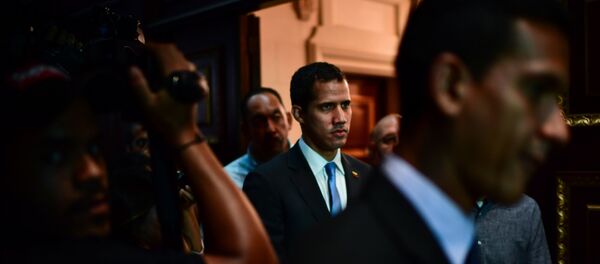Juan Guaido, the self-proclaimed interim president of Venezuela, has proposed a draft legislation that will sell Venezuela's oil reserves to private companies, a Reuters report says. The move would shrink the participation of state-run oil company PDVSA.
"We need to change the current framework… we need to open up the oil industry to private investment", said Ricardo Hausmann, Guaido's delegate to the Inter-American Development Bank.
Under the proposed legislation, private firms could choose to run the day-to-day operations of Venezuelan oil fields, a major difference from laws enacted by Venezuela's former leader Hugo Chavez, which only allowed foreign companies to hold minority stakes without granting operational control.
"All hydrocarbon reservoirs can be part of an auction to be decided by Venezuela's Hydrocarbon Agency", the draft legislation says.
Unsurprisingly, the United States is all too eager to invest in Venezuelan oil, as John Bolton, the US National Security Adviser, said it "will make a big difference to the United States economically if we could have American oil companies invest in and produce the oil capabilities in Venezuela".
Bolton has repeatedly called on legitimate Venezuelan President Nicolas Maduro to resign, even hinting at a military option as a way to solve the current crisis in the South American country.
The new proposed law would impose a flexible royalty rate with a minimum of 16.67 percent and maximum of 30 percent, depending on oil prices, removing shadow taxes that increase payments, according to Reuters.
However, Guaido's legislation remains symbolic, as incumbent President Maduro is the one controlling the nation's military and the oil fields.
"It would be a step backwards, it would not live up to what Chavez left the workers, which is a company that's free, a nationalised company", he told Reuters.
The oil industry, which generates about 90 percent of Venezuela's trade income, was nationalised by Hugo Chavez in 2001, which forced foreign companies to either enter joint ventures controlled by PDVSA, or — as was the case with ConocoPhillips and Exxon Mobil Corp — to leave the country entirely.




